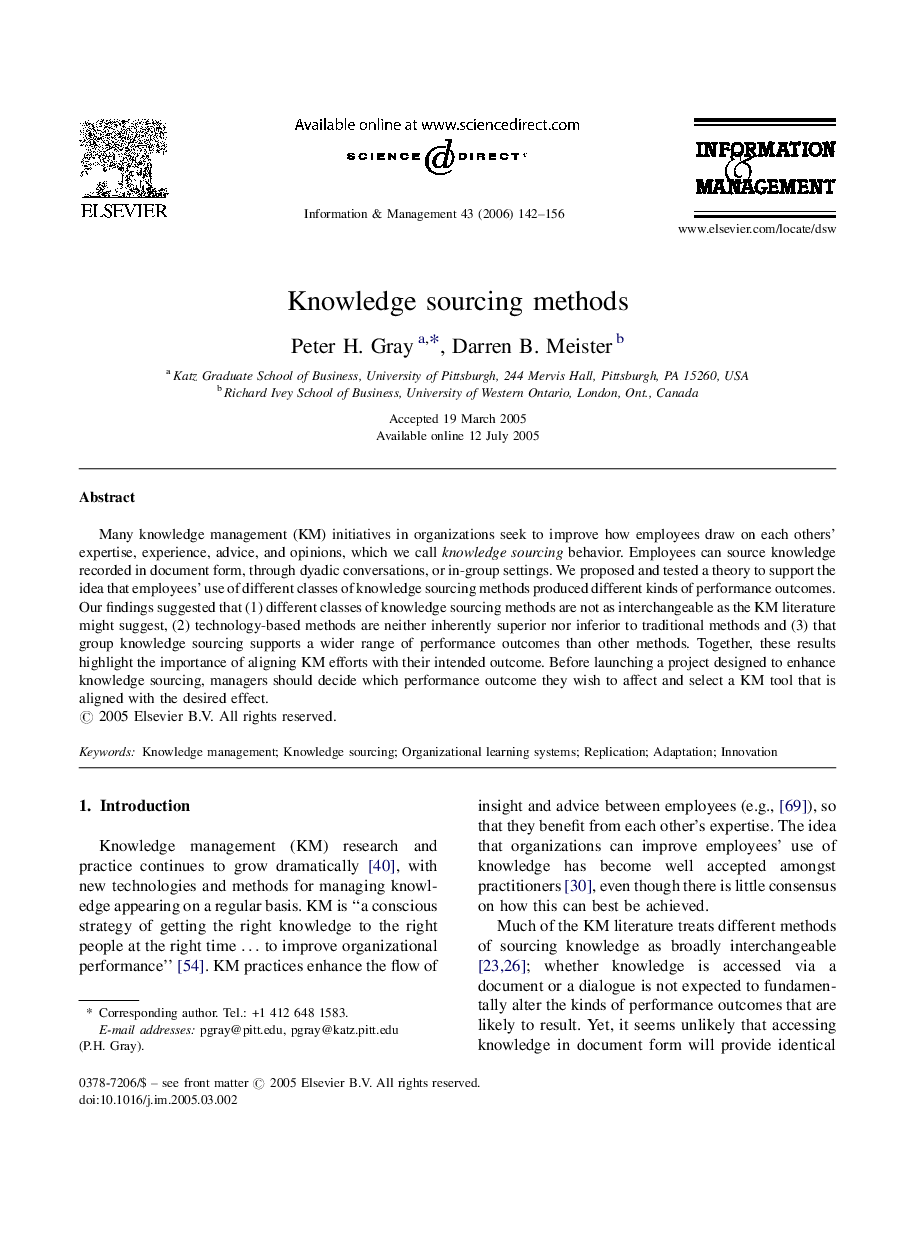| Article ID | Journal | Published Year | Pages | File Type |
|---|---|---|---|---|
| 554587 | Information & Management | 2006 | 15 Pages |
Many knowledge management (KM) initiatives in organizations seek to improve how employees draw on each others’ expertise, experience, advice, and opinions, which we call knowledge sourcing behavior. Employees can source knowledge recorded in document form, through dyadic conversations, or in-group settings. We proposed and tested a theory to support the idea that employees’ use of different classes of knowledge sourcing methods produced different kinds of performance outcomes. Our findings suggested that (1) different classes of knowledge sourcing methods are not as interchangeable as the KM literature might suggest, (2) technology-based methods are neither inherently superior nor inferior to traditional methods and (3) that group knowledge sourcing supports a wider range of performance outcomes than other methods. Together, these results highlight the importance of aligning KM efforts with their intended outcome. Before launching a project designed to enhance knowledge sourcing, managers should decide which performance outcome they wish to affect and select a KM tool that is aligned with the desired effect.
